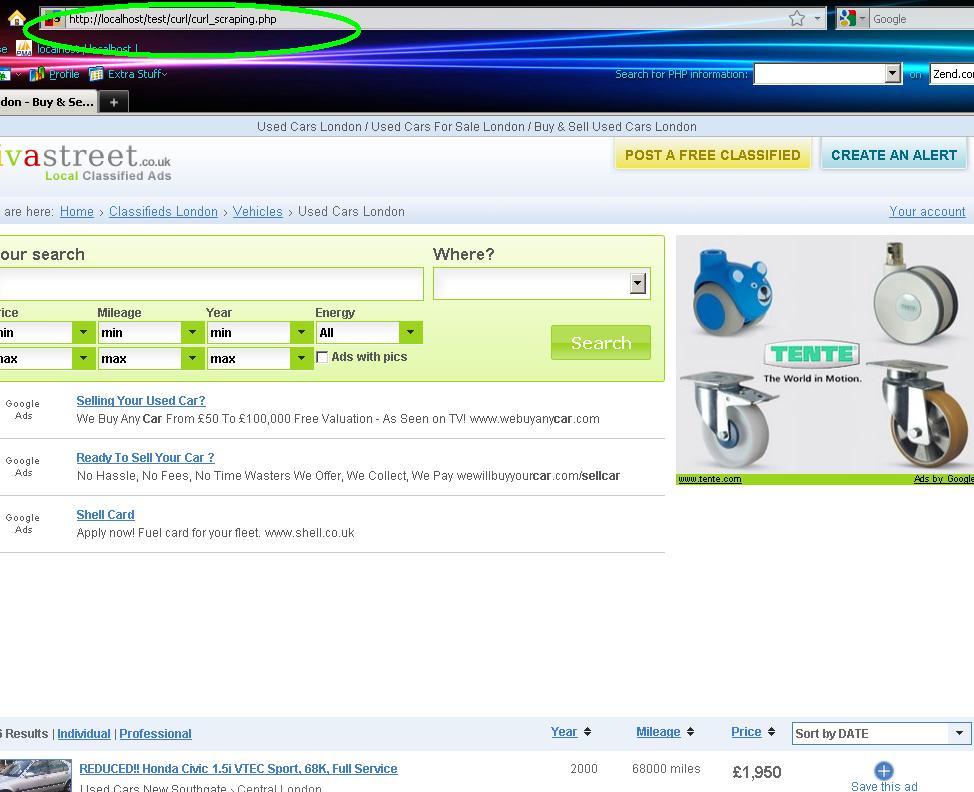There is this function:
function disguise_curl($url)
{
$curl = curl_init();
// setup headers - used the same headers from Firefox version 2.0.0.6
// below was split up because php.net said the line was too long. :/
$header[0] = "Accept: text/xml,application/xml,application/xhtml+xml,";
$header[0] .= "text/html;q=0.9,text/plain;q=0.8,image/png,*/*;q=0.5";
$header[] = "Cache-Control: max-age=0";
$header[] = "Connection: keep-alive";
$header[] = "Keep-Alive: 300";
$header[] = "Accept-Charset: ISO-8859-1,utf-8;q=0.7,*;q=0.7";
$header[] = "Accept-Language: en-us,en;q=0.5";
$header[] = "Pragma: "; //browsers keep this blank.
curl_setopt($curl, CURLOPT_URL, $url);
curl_setopt($curl, CURLOPT_USERAGENT, 'Mozilla/5.0 (Windows; U; Windows NT 5.1; en-US; rv:1.9.2.3) Gecko/20100401 Firefox/3.6.3');
curl_setopt($curl, CURLOPT_HTTPHEADER, $header);
curl_setopt($curl, CURLOPT_REFERER, 'http://www.google.com');
curl_setopt($curl, CURLOPT_ENCODING, 'gzip,deflate');
curl_setopt($curl, CURLOPT_AUTOREFERER, true);
curl_setopt($curl, CURLOPT_RETURNTRANSFER, 1);
curl_setopt($curl, CURLOPT_TIMEOUT, 10);
$html = curl_exec($curl); //execute the curl command
if (!$html)
{
echo "cURL error number:" .curl_errno($ch);
echo "cURL error:" . curl_error($ch);
exit;
}
curl_close($curl); //close the connection
return $html; //and finally, return $html
}...that several people seem to use to scrape content off a website (to state the obvious, you would do "echo disguise_curl($url)").
Is there any way to detect if someone is doing that to my site, and block access to them or show a page with a specific message?
I've experimented with some sites to see if they manage to block access this way, and found http://london.vivastreet.co.uk manages to do that. I haven't been able to figure out how, but maybe someone can.
A second query: Why would someone write a complicated function like that when get_file_contents($url) does the same? Is it to avoid suspicion?
Thank you very much for your time.


